2006 Toyota 4Runner Tires & Services
Get Started
Complete Auto Care for Your 2006 Toyota 4Runner
-
TIRES FOR YOUR 2006 Toyota 4Runner View Tire Info GET TIRE PRICING
-
REPAIR FOR YOUR 2006 Toyota 4Runner View Repair Info SCHEDULE REPAIR
-
MAINTENANCE FOR YOUR 2006 Toyota 4Runner View Maintenance Info SCHEDULE MAINTENANCE
-
OFFERS FOR YOUR 2006 Toyota 4Runner Limited Time Tire Offers VIEW ALL COUPONS
2006 Toyota 4Runner Tires
Recommended Tires | Tire Information
2006 Toyota 4Runner Tires Sizes, Speed Ratings, and Inflation
Not sure about your 2006 Toyota 4Runner tire size? Use the following chart to find information on tire size, speed rating, and inflation.
| Trim Level | Speed Rating | Inflation in PSI F/R | Tire Size |
|---|---|---|---|
| 2006 Toyota 4Runner SR5* | S | 32 PSI/32 PSI | P265/70R16 |
| 2006 Toyota 4Runner SR5* | S | 32 PSI/32 PSI | P265/65R17 |
| 2006 Toyota 4Runner Sport | S | 32 PSI/32 PSI | P265/65R17 |
| 2006 Toyota 4Runner Limited | H | 32 PSI/32 PSI | P265/60R18 |
|
2006 Toyota 4Runner SR5* Speed Rating: S Inflation F/R: 32 PSI/32 PSI |
|
2006 Toyota 4Runner SR5* Speed Rating: S Inflation F/R: 32 PSI/32 PSI |
|
2006 Toyota 4Runner Sport Speed Rating: S Inflation F/R: 32 PSI/32 PSI |
|
2006 Toyota 4Runner Limited Speed Rating: H Inflation F/R: 32 PSI/32 PSI |
* Note: these models have different tire sizes depending on vehicle options.
Recommended Tires for Your 2006 Toyota 4Runner
What tires are best for a 2006 Toyota 4Runner? Check out the following tire brands and types.
 ALENZA AS ULTRA
ALENZA AS ULTRA
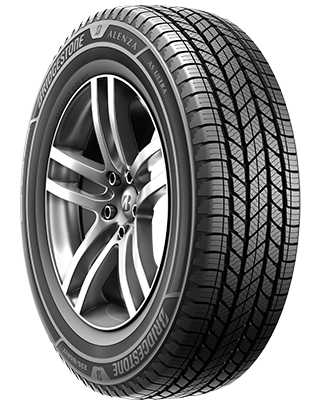
- No warranty
- All-Season
- Light Truck Tires
 Blizzak DM-V2
Blizzak DM-V2
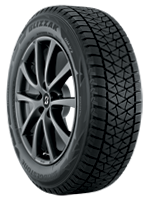
- No warranty
- Winter
- Winter
 Dueler H/P Sport
Dueler H/P Sport
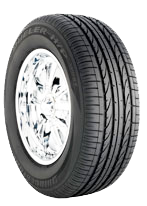
- Platinum Pact Limited Warranty
- Summer
- Light Truck Tires
 Dueler H/T 840
Dueler H/T 840
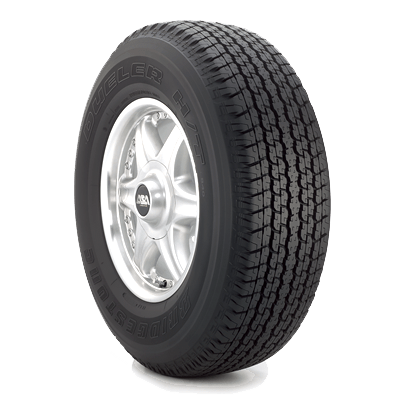
- Platinum Pact Limited Warranty
- All-Season
- Light Truck Tires
 Dueler A/T Revo 3
Dueler A/T Revo 3
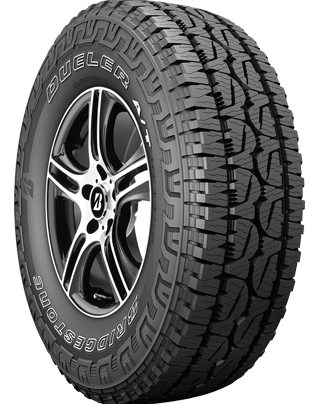
- Platinum Pact Limited Warranty
- All-Season
- Light Truck Tires
 WEATHERPEAK
WEATHERPEAK
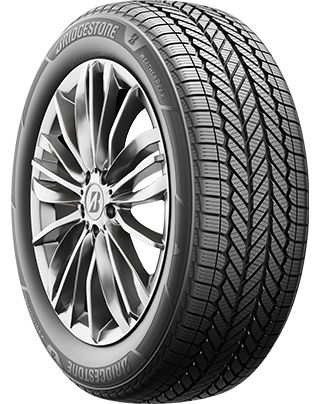
- Platinum Pact Limited Warranty
- All-Season
- Passenger Tires
 Dueler H/T 684 II
Dueler H/T 684 II
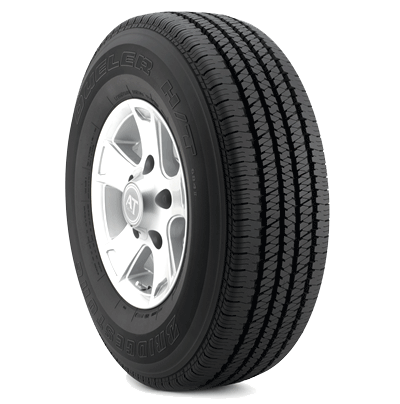
- Platinum Pact Limited Warranty
- All-Season
- Light Truck Tires
 Destination A/T2
Destination A/T2
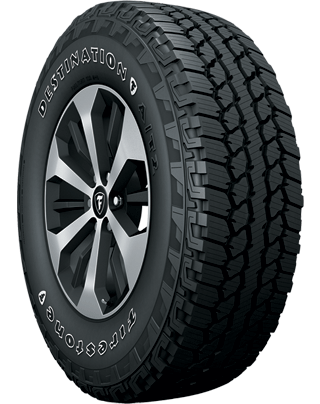
- Gold Pledge Limited Warranty
- All-Season
- Light Truck Tires
 Destination LE3
Destination LE3
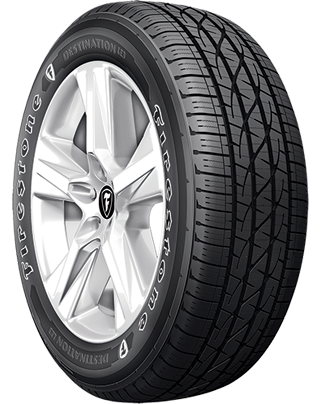
- No warranty
- All-Season
- Light Truck Tires
 Winterforce 2 UV
Winterforce 2 UV
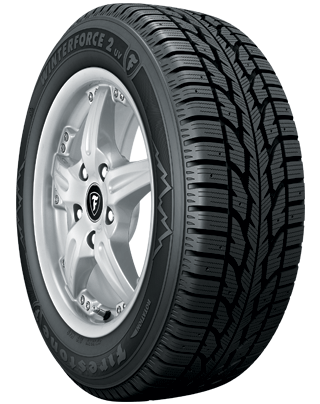
- No warranty
- Winter
- Winter
 Destination X/T
Destination X/T
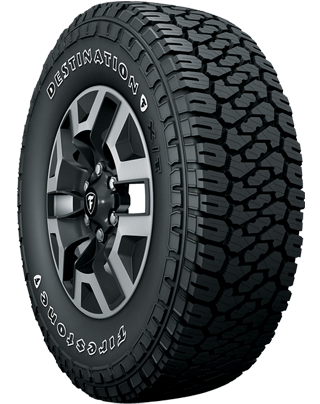
- Gold Pledge Limited Warranty
- All-Season
- Light Truck Tires
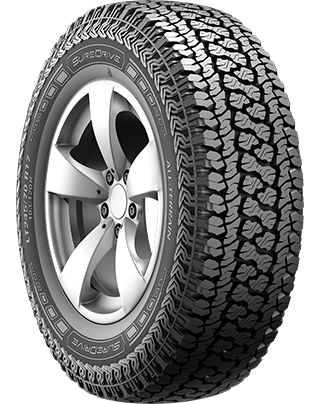
- No warranty
- All-Season
- Light Truck Tires
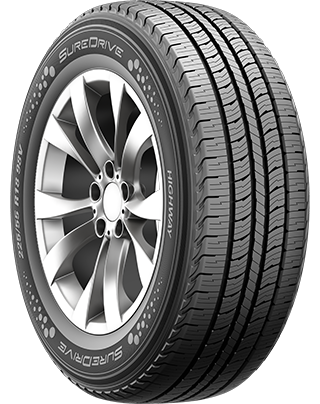
- No warranty
- All-Season
- Light Truck Tires
 PROXES ST III
PROXES ST III
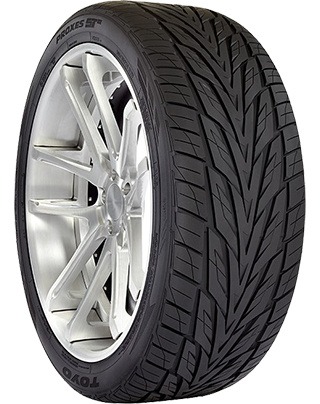
- No warranty
- All-Season
- Light Truck Tires
 OPEN COUNTRY A/T III
OPEN COUNTRY A/T III
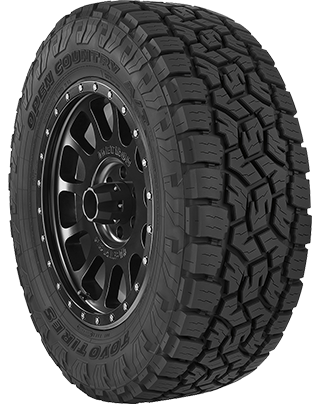
- No warranty
- All-Season
- Light Truck Tires
 OPEN COUNTRY HTII
OPEN COUNTRY HTII
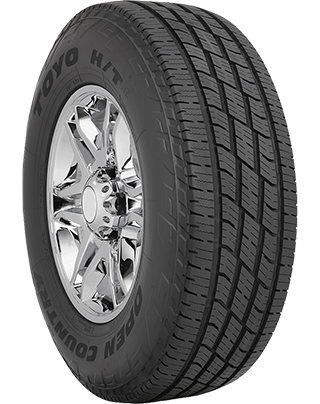
- No warranty
- All-Season
- Light Truck Tires
2006 Toyota 4Runner Tire Information
Beyond the correct tire size, there are a couple of other factors to consider when buying Toyota 4Runner tires like which tire brands you like most and where you drive. When thinking about your driving conditions, consider where you live (mountains vs. city vs. countryside) and the kind of weather can catch you off-guard. (Watch out Tornado Alley!) It's not uncommon for drivers in states that experience all four seasons to buy more than one set of tires. one for summer and one for winter. Other drivers prefer to purchase one all-season set to limit trips to the tire shop and make sure their vehicle is prepared in the rain, sleet, snow, or sun!
Driving style is next on the list to think about when buying tires. If you're an avid off-roader who yearns to pioneer new paths, you have very different tire needs than a highway commuter who doesn't hit the hills very often. Browse Toyota 4Runner tires online or come to your nearby Firestone Complete Auto Care for help selecting the tire that's right for you.
2006 Toyota 4Runner Tire Installation & Rotation
We sell tires, but we also service them and care for all the around-the-wheel components. We're a tire store that also offers professional tire installation, maintenance, and rotation, along with complete auto care. We make it easy to buy new 2006 Toyota 4Runner tires online and book an installation appointment at the same time.
2006 Toyota 4Runner Tire Questions
-
Why does Toyota tire inflation matter? Even a tiny decrease in tire pressure could impact your safety and fuel economy. Maintaining proper tire pressure can help increase fuel economy, improve braking time, and boost tire lifespan.
-
What do the tire sidewall numbers mean for my Toyota 4Runner? The numbers on your tire sidewall give you information about tire speed rating, traction, treadwear, tire size, and load carrying capacity. Chat with a tire technician to learn how to read the numbers on your Toyota tires!
-
How do I check the tread depth on my Toyota tires? Stay on top of your tire tread depth to help avoid a dangerous drive. You can check tread depth with a penny. Hold the penny so that Abraham Lincoln is facing you, then place your penny into a tread groove upside down. If you can see the top of Abe’s head, your tread is shallow and it might be time for new Toyota 4Runner tires. Grab a penny. Hold the so that Abe Lincon's head is facing you and his hair is pointing toward the ground. Then, place the penny into a tread groove. If you can see the top of Abe’s head, your tread is shallow and it might be time for new Toyota 4Runner tires.
2006 Toyota 4Runner Repair
How do I learn more about auto repairs? Click on a service below to read about the types of Toyota 4Runner repairs we do at Firestone Complete Auto Care.
2006 Toyota 4Runner Repair Information
No driver looks forward to car repairs. But we work to provide you with a different experience at Firestone Complete Auto Care. Bring your 2006 Toyota 4Runner in for repair services and our technicians will take care of your 4Runner like it was their own. We'll work to evaluate the scope of repairs needed and explain your options. We’ll never recommend a repair we don’t think is necessary for your safety or the performance of your Toyota.
How Much Are Toyota 4Runner Repairs?
Several factors can affect the cost to repair your 2006 Toyota 4Runner, including what kind of repair you need, prices of appropriate replacement parts, the labor involved, and the state you live in. But regardless of where you’re located, check out our website for repair coupons and offers that could save you some cash.
A few different aspects can influence repair costs for your 2006 Toyota 4Runner, like
Questions About 2006 Toyota 4Runner Auto Repairs
-
Can scheduled maintenance help me avoid repairs? One of the best ways to prevent 2006 Toyota 4Runner repairs is by staying on top of your Toyota maintenance schedule. This schedule is written by the people who made your vehicle and they know best how to keep it running smoothly.
-
Should I bring my Toyota in even if I can't pinpoint the problem? You know your vehicle. You also know when something feels 'off' with your vehicle. Pay attention when things don't run like they used to and stop by for a Courtesy Check when you notice an unusual sign, smell, or sensation. We might be able to help you prevent Toyota 4Runner repairs!
-
Are the repairs you recommend for my Toyota actually needed? Talk to your technician. We'll never recommend a service or repair for your 2006 Toyota 4Runner that we don't think is necessary for your safety.
Get Your 2006 Toyota 4Runner Brakes Fixed
Your Toyota 4Runner engine may be strong and reliable. But if you can’t stop it, it’s as good as scrap metal. If you’re experiencing squeaky brakes or a loss of braking power, don’t wait! Safe driving and responsive brakes go hand in hand. Plus, waiting can lead to more expensive parts wearing out and requiring replacement. Get your 2006 Toyota 4Runner brakes fixed at Firestone Complete Auto Care. Our brake repair services include brake pad/shoe replacement, brake rotor/drum resurfacing, brake fluid exchange, and wheel cylinder and brake caliper installation.
Toyota 4Runner Brakes Questions
-
What can cause my 4Runner to shake when I apply the brakes? If your 4Runner shakes when you brake, you could be dealing with warped rotors, faulty brake calipers, worn brake pads or rotors, or loose or worn suspension parts. Schedule a free brake inspection at Firestone Complete Auto Care for help diagnosing your brake issue.
-
What is the average lifespan of 4Runner brake pads? Brake pads typically last about 30,000 to 40,000 miles. However, driving conditions can affect this range. Sticking to highway driving and braking smoothly can help extend the life of your brake pads, while towing heavy loads or frequently riding your brakes can shorten it.
-
Is it bad if my 4Runner is leaking brake fluid when off? Because your 4Runner brake system is a closed hydraulic system, it should not leak brake fluid. However, if components in your brake system have worn out or been damaged, it might cause brake fluid to leak.
Repairing Your Toyota 4Runner Drivetrain
Drivetrains for front, rear, and all-wheel-drive and 4WD vehicles are not all the same. You don't want to go to any random shop for drivetrain repair. You want to go to Firestone Complete Auto Care. We can fix many 2006 Toyota 4Runner drivetrain components Your 4Runner might need driveshaft repair if you notice clunks when shifting, vibration as your vehicle accelerates, resistance when turning, or heavy vibrations in your floorboards.
2006 Toyota 4Runner Drivetrain Questions
-
What are the symptoms of a damaged Toyota drivetrain system? Your Toyota 4Runner drivetrain might be damaged if you notice strange noises from the rear of your vehicle, see fluid leaking, or have issues turning.
-
Why is the malfunction indicator light (MIL) on in my 4Runner? If your 4Runner has its malfunction warning light (more commonly called the check engine light) illuminated, it could indicate engine troubles, problems with the transmission, electrical issues, malfunctioning sensors, connector problems, or misfire issues.
-
Is a drivetrain malfunction in my 4Runner serious? A drivetrain malfunction in your 4Runner should never be taken lightly. Driving with a malfunctioning drivetrain can put you in danger and lead to further vehicle damage, so it's essential to have a qualified mechanic assess and repair the problem as soon as possible.
2006 Toyota 4Runner Wheel Alignment
With an alignment service, adjustments are made to your Toyota 4Runner’s suspension system, which serves to attach your wheels to your vehicle. During the service, calculated changes are made to the angles of your tires. This is so that your tires hit the road at an optimal angle for your vehicle’s performance — just as Toyota intended. Bring your 2006 Toyota 4Runner in for a wheel alignment and we'll start with an alignment check. If needed, we'll adjust your wheel alignment angles to match Toyota recommendations.
Answers to Toyota 4Runner Alignment Questions
-
What can knock my Toyota 4Runner out of alignment? Hitting a pothole or curb can alter your wheel alignment. So can general wear and tear over time.
-
When should you get a wheel alignment for your 4Runner? It’s usually suggested you check your alignment about every 6,000 miles or 6 months (whichever occurs first). Still, you should reference your 4Runner owner’s manual for Toyota's recommended interval.
-
Do you need to get your 4Runner wheels aligned? It’s not mandatory to get an alignment after installing new tires on your 4Runner, but it can be a smart decision! Proper alignment from the jump can help improve handling, fuel efficiency, and tire wear.
Engine Repairs for Your 2006 Toyota 4Runner
If your 2006 Toyota 4Runner needs engine repair, our technicians will provide you with a thorough explanation beforehand. We don't start working until we have your approval. If a repair can wait, we'll let you know. But if immediate repairs are necessary for your safety, we’ll make sure that's clear, too. We want to provide you with the information you need to make an informed engine repair decision. By choosing Firestone Complete Auto Care for 4Runner engine repairs and you can feel good knowing that we only use Toyota-compliant replacement parts such as the timing belt, engine oil seal, ignition coil, or other parts.
2006 Toyota 4Runner Engine Q&A
-
Why does the check engine light come on when I start my 4Runner? It's okay if your check engine light comes on when you first start your vehicle. This is a sign that your vehicle is testing its circuits. The light should go off shortly. Bring your vehicle in if it doesn't.
-
Why is my Toyota 4Runner making engine noise? Strange under-the-hood noises can point to problems within your Toyota 4Runner engine. Tapping or knocking could mean you need an oil change. Whistling sounds could mean you have an intake leak or misaligned belt. Squealing may be caused by a loose fan belt, and grinding could be a sign that something is wrong with your brakes — not the engine.
-
What could damage a Toyota engine? Certain driving habits can damage your engine and should be avoided. These habits include 'running on fumes,' revving the engine while still in Park, or pushing 'the pedal to the metal' before the engine has warmed up. Help sustain your engine’s performance and efficiency by staying miles away from these bad driving practices.
Tire Repair for Your 2006 Toyota 4Runner
If the road has been rough on your 2006 Toyota 4Runner tires, Firestone Complete Auto Care can help. There’s a chance your tire could be plugged and patched (rather than replaced). Our technicians can inspect your tire and let you know if it is safe to repair. We’ll begin by taking a look at where the damage is, the type and extent of the tire damage, and how all of your tires are wearing.
If we determine that your 2006 Toyota 4Runner tire can be safely repaired, the repair process is actually fairly simple: (1) Separate the tire from the vehicle wheel, (2) fill in the area that’s been punctured to prevent damage from moisture, and (3) secure and seal the inner tire liner to ensure the tire is airtight.
Toyota 4Runner Tire Repair Questions
-
What happens if I drive my Toyota on a flat tire? Driving on a flat or underinflated tire can put extra stress on your wheels and alignment. While it’s sometimes necessary to drive a short distance on a flat tire to get to a safe place, don’t take any other trips in your 4Runner until you can have the flat tire repaired or replaced.
-
Can I use an emergency/temporary sealant to fix my Toyota's flat tire? Fast fixes are a mixed blessing. They’ll help you get your Toyota 4Runner to Firestone Complete Auto Care, but don’t count on them to keep you on the road for very long. Using a temporary sealant may also void a Bridgestone or Firestone tire warranty.
-
What can cause 4Runner tires to keep losing air? Tire punctures, damaged wheels, and leaking valve stems are possible reasons for your 4Runner tires continuously losing air.
2006 Toyota 4Runner Maintenance
When it comes to your Toyota 4Runner, how you treat your car makes all the difference in its performance. With proactive maintenance, your 4Runner could be on the road well past the 200,000 mile mark.
2006 Toyota 4Runner Maintenance Information
Instead of waiting for an issue to arise with your 4Runner, you can stay ahead of problems before they even begin. Just follow your 2006 Toyota 4Runner maintenance schedule! The recommended maintenance schedule is put together by Toyota, your vehicle manufacturer. Scheduled maintenance services can vary depending on driving conditions, climate, and other factors; in most cases, though, recommended maintenance will consist of services like oil changes, tire rotations, brake pad replacement, filter changes, and fluid checks and exchanges. Scheduling routine service appointments is one of the best ways to help extend your 4Runner's life, increase your vehicle safety, and help you avoid expensive repairs caused by 2006 Toyota 4Runner problems later.
Essential Maintenance to Keep Your 2006 Toyota 4Runner Running Newer, Longer
Head to your nearest Firestone Complete Auto Care in your 2006 Toyota 4Runner for factory-recommended routine maintenance and our technicians will jump right in with a Courtesy Check. A Courtesy Check helps "set the stage" for your service and catch any small problems before they turn into big repairs. Every Courtesy Check will include a visual inspection of your 4Runner. We’ll check your head and tail lights, fluid levels, filters, tires (and their alignment!), and windshield wiper blades. We’ll also perform a free battery check to determine your battery’s charge level.
Firestone Complete Auto Care is your spot for 2006 Toyota 4Runner maintenance. We can help you keep your vehicle (and your life!) running smoothly. Many of our locations have weekend and evening hours for your convenience.
2006 Toyota 4Runner Maintenance Q&A
-
What should I do after hitting a pothole in my Toyota 4Runner? You know your Toyota 4Runner better than anyone else, so you’ll know if something doesn’t feel right while driving. Have your alignment checked (and adjusted if necessary) as soon as you notice a pulling steering wheel to prevent suspension damage or uneven tire wear.
-
When does my Toyota 4Runner need high mileage oil? Do you have more than 75,000 miles on your Toyota 4Runner? If so, request to switch to high mileage oil at your next oil change. This type of oil is specially formulated to keep aging engine parts in the best possible condition.
-
Why are my Toyota dashboard lights on? It's better to get them addressed as soon as possible. An illuminated dashboard light means something in your vehicle isn't functioning like it should. Letting problems linger can mean bad news for your Toyota 4Runner, so be sure to take your car in for service as soon as you notice an illuminated dashboard light.
2006 Toyota 4Runner Battery Replacement & Size
Researching battery replacements for your Toyota 4Runner?
| Battery | Engine | Warranty | Cold Cranking Amps | |
|---|---|---|---|---|
| 27F-3 | V6/4.0L | Replacement 24 months | Performance months | 710 |
| 24F-6 | V6/4.0L | Replacement 36 months | Performance months | 750 |
| 24F-RP | V6/4.0L | Replacement 48 months | Performance months | 750 |
| 24F-3 | V8/4.7L | Replacement 24 months | Performance months | 650 |
| 35-2 | V8/4.7L | Replacement 36 months | Performance months | 640 |
| 24F-RP | V8/4.7L | Replacement 48 months | Performance months | 750 |
Car Batteries for 2006 Toyota 4Runner
On average, auto batteries last anywhere from three to five years. You want to replace your 2006 Toyota 4Runner battery before it fails and leaves you stranded. Watch for signs that your current battery is getting too old or too weak. A slow engine crank, an illuminated check engine light or battery signal, swollen battery case, corrosion-covered posts, and subpar electrical performance can all signal that your battery is on its last leg.
You can also get a Free Battery Test at your local Firestone Complete Auto Care. Stop by for a free battery test and, if needed, a replacement battery for your 2006 Toyota 4Runner. Automotive batteries are just one of our many areas of expertise. Our technicians are familiar with Toyota-specific recommendations for 4Runner car batteries’ reserve capacities and cold cranking amps. Get help identifying the type and size of battery that matches your vehicle, and schedule an appointment today for a quick car battery replacement.
Answers to Your Toyota 4Runner Car Battery Questions
-
Why won’t my Toyota 4Runner battery hold a charge? A battery that won't hold a charge is almost as good as dead. The battery might be old. Or, you may have a habit of leaving your car doors open and the lights on overnight. Stop by for a free battery test at your local Firestone Complete Auto Care to learn more about the state of your battery.
-
How long can I expect my car battery to last? A car battery normally lasts three to five years, but this number can vary based on battery type, your driving habits, and battery maintenance.
-
Why is there white, crusty buildup on my 4Runner’s battery post? The white, crusty stuff that can accumulate around 4Runner car battery terminals is called corrosion. It is caused by a chemical reaction between the battery acid and the air, which creates a white, powdery substance that can build up on the terminals over time. Corrosion can interfere with the flow of electricity between the battery post and the car's electrical system, sometimes leading to poor electrical performance, difficulty starting, and even premature battery failure.
Oil Changes for 2006 Toyota 4Runner
Your 2006 4Runner’s oil should be changed according to Toyota’s recommended oil change intervals. No matter the mileage, your 4Runner may need its oil changed ASAP if your check engine light is on, you hear knocking sounds coming from the engine, smell oil inside the car, or notice excess vehicle exhaust. You might need an oil change more frequently than what’s recommended by Toyota if you regularly haul heavy loads, drive in dusty terrain, go off-roading a lot, or go at low speeds on long distance trips.
Whether you need high mileage oil, synthetic oil, or conventional oil, you'll find the right 2006 Toyota 4Runner motor oil at Firestone Complete Auto Care. Talk with a teammate and consult your owner's manual before picking a motor oil. At Firestone Complete Auto Care, you can choose from the following oils: Quaker State® Advanced Durability™ conventional oil, Pennzoil® High Mileage Vehicle® motor oil, Pennzoil Platinum® Full Synthetic motor oil with PurePlus™ Technology, and Shell Rotella® heavy-duty engine oil. During an oil change, a technician will change your 4Runner's oil, replace and recycle your used oil and filter, inspect all of your other filters, top-off important fluids, and visually inspect the rest of the vehicle. Get professional engine care by making an oil change appointment for your 4Runner today.
Oil Change Q&A for Your 2006 Toyota 4Runner
-
What can cause the oil light on my Toyota 4Runner to illuminate? Your Toyota 4Runner oil change reminder light may come on if you're overdue for an oil change. The oil pressure light will typically come on if the oil level in the engine is too low, the oil pump is failing, you have a clogged oil filter, or there's a faulty oil pressure sensor.
-
How hard is it to change Toyota 4Runner oil at home? Changing your own oil isn't as convenient as you might think. It requires special tools and old oil must be disposed of properly. Having your oil professionally changed reduces the chances of something going wrong with the oil change, but also with your vehicle down the road.
-
Why is my Toyota 4Runner spewing blue or gray exhaust smoke? There could be an oil leak and your engine is burning oil. Time to have a qualified technician check things out. The leak could be caused by several issues like leaking valve seals, damaged piston rings, or worn cylinder walls.
2006 Toyota 4Runner Engine Tune-Ups & Maintenance
Regular engine tune-ups can optimize your 4Runner’s power on the road. The Firestone Complete Auto Care location in your community offers several Toyota 4Runner engine tune-up services. The standard Firestone Tune-Up is one service option. It includes a complete visual inspection of engine components, installation of new spark plugs, and a lifetime warranty on parts*. A second service option replaces the air and fuel filter in your 4Runner. The third tune-up option is a fuel system cleaning service, which is a three-step process that removes varnish, dirt, and carbon deposits on your 4Runner's fuel injectors, throttle body, and throttle plate. The result? Restored fuel system performance. Consider this when choosing a tune-up service for your 4Runner: your vehicle’s maintenance record and mileage can determine which service is best. Chat with a Firestone technician before you jump into a specific service to ensure your engine tune-up money is well-spent.
*Talk to a Firestone Complete Auto Care teammate for full terms and conditions on warranties.
2006 Toyota 4Runner Engine Tune-Up Q&A
-
Will it hurt my Toyota 4Runner to drive with old spark plugs? Replace spark plugs on time or about every 30,000 miles or so. Without the spark of electricity created by spark plugs, your engine doesn’t have the combustion it needs to start — which could leave you stranded on the road. Always replace your spark plugs on time based on Toyota’s recommendations.
-
What do I do if I see a pool of liquid under my Toyota 4Runner? Don't ignore puddles of fluid under your Toyota 4Runner. It could signal a coolant leak, brake fluid leak, or an oil leak. Let any one of these leaks linger and it could cause engine damage.
-
How frequently do the fuel injectors in my Toyota 4Runner need to be cleaned? Factors like fuel type and driving conditions can affect how frequently you need to clean your 4Runner fuel injectors. Some manufacturers recommend a fuel system cleaning as part of routine maintenance, or as needed if your vehicle is showing signs of poor fuel system performance.
Suspension Service & Repair for 2006 Toyota 4Runner
During the first few years you had your 2006 Toyota 4Runner, you and your passengers probably enjoyed a ride that was smooth and balanced. Lately, though, your ride’s been feeling a little bumpy. Maybe your 4Runner jolts, sways to one side, or makes an unusual noise when going over a speed bump. The first sign of trouble is the best time to bring your 2006 Toyota 4Runner in for steering and suspension repairs. We’ll get to the source of your car problems and, if your 4Runner suspension system needs repair, we'll explain all of your options and the potential cost.
2006 Toyota 4Runner Steering & Suspension Questions
-
Why is my Toyota 4Runner bouncing excessively? Damaged struts or shocks can't dampen road bumps properly, causing your vehicle to feel like a trampoline after each dip or bump.
-
Why does my 4Runner front end dip forward when I brake? When you brake, the forward momentum combined with your vehicle's weight sends a lot of force to the vehicle's front end. A bad suspension can cause all that weight and force to push the front end downward.
-
Does treadwear and tire pressure impact my 4Runner's steering and suspension? Maintaining your tires can help reduce strain on the suspension, nd also let you know when it's time to replace your tires. A faltering steering and suspension system could lead to uneven tire wear.
Convenient & Local 2006 Toyota 4Runner A/C Service
Our technicians will work to solve your 2006 Toyota 4Runner A/C problems to the best of their ability. During this initial A/C performance check, we’ll look at the state of your 2006 Toyota 4Runner’s A/C system to evaluate what repairs are necessary (if any). This check will include an examination of system pressure, a visual inspection, and a leak test.
When we perform an A/C repair on your 2006 Toyota 4Runner, we’ll also do an A/C evacuation and recharge. To start this process, a technician will flush out the old refrigerant from your vehicle’s A/C system. Then, they’ll use Toyota’s specifications to evacuate the system. The A/C system is recharged with new refrigerant.
2006 Toyota 4Runner A/C System FAQs
-
What’s making my 4Runner A/C put out warm air? Maybe your A/C starts cool but then gets warm. Or maybe it never gets cold in the first place. Either way, your A/C troubles could be traced back to a clogged expansion valve, faulty compressor clutch, blown fuse, or leak.
-
What can cause an A/C system leak? A/C system leaks are often due to a combination of age and moisture. Rubber seals and gaskets naturally degrade over time, allowing refrigerant to exit and moisture to enter your 4Runner's A/C system.
-
Why does my 4Runner’s A/C only work when the car is moving? Damaged or worn components in your 4Runner’s electrical or air conditioning system can cause the A/C to only work when the car is moving. You may be dealing with low coolant or a faulty cooling fan.
2006 Toyota 4Runner Transmission Service
The transmission delivers power from the motor to your wheels so that you can drive at your desired speed. Because of the transmission’s responsibility to translate the right dose of power into the right amount of speed, a tiny transmission issue can take a major toll on your car’s performance. Toyota 4Runner transmission problems can present themselves as shifting delays, grinding when accelerating, the car shaking at any speed, or a burning smell or whistling sounds coming from under the hood. If you don’t pay attention to Toyota 4Runner transmission trouble you could see your fuel economy decrease or find that your 4Runner isn’t working at all. Our technicians know how to service your 2006 4Runner up to Toyota-recommended standards. As soon as you suspect something’s wrong with your 4Runner’s transmission, book an appointment at your local Firestone Complete Auto Care to help keep your Toyota running for miles and miles.
Questions About 2006 Toyota 4Runner’s Transmission
-
When should I have my 4Runner's transmission fluid checked or exchanged? Caring for your Toyota 4Runner’s transmission fluid is a great way to help it perform. About every 30,000 to 60,000 miles is a good timeframe for having your transmission fluid inspected and perhaps changed. Service intervals can vary depending on how you use your Toyota, so check with your technician first. Luckily, leaks and low fluid levels are easy to spot and inexpensive to fix.
-
Is it possible for transmission fluid to leak from my Toyota 4Runner? Yes. Toyota 4Runner transmission fluid can leak as time passes, which may lead to transmission problems. Transmission fluid leaks are often caused by worn or damaged transmission components, such as the transmission pan, cooler lines, seals, or housing. An overfilled transmission may also be behind your transmission fluid leak.
-
Should I avoid driving my Toyota 4Runner if there is a transmission fluid leak? It’s not advisable to drive your 4Runner if it’s leaking transmission fluid. Your transmission system needs transmission fluid to function properly, and a leak can lead to significant problems, such as overheating or reduced performance. You might even experience transmission failure.
Get a 2006 Toyota 4Runner Vehicle Inspection
Every service performed at Firestone Complete Auto Care includes a multi-point Courtesy Check. First, a technician will pop the hood on your Toyota 4Runner and test the battery to see how much charge it has left – and determine if it may fail in the near future. The check will continue with a visual inspection of your Toyota 4Runner's windshield wiper blades, lights, filters, alignment, tires, hoses, belts and fluid levels.
While every visit to your local Firestone Complete Auto Care includes a Courtesy Check, you can also request a Complete Vehicle Inspection for your 2006 Toyota 4Runner if you suspect there may be a bigger problem. A Complete Vehicle Inspection includes everything in a Courtesy Check, plus a hands-on examination of your steering and suspension system, brakes, and exhaust components. With this inspection, we want to help you stay on top of any issues that may wreak havoc on your 2006 Toyota 4Runner if left unaddressed.
In some cities or states, you may be able to complete your vehicle’s safety tests or state inspection at your nearest Firestone Complete Auto Care. Specific requirements for these types of inspections vary by state.
2006 Toyota 4Runner Vehicle Inspection Q and A
-
When does my Toyota 4Runner need an inspection? You drive your car, day in and day out, so you know it best. If you notice unusual engine noises or you can’t shake the feeling that something is 'off,' start with a Courtesy Check to stay ahead of potential issues.
-
My 2006 Toyota 4Runner failed the state inspection test. Can you fix it? Did your vehicle fail a recent state inspection test? We can help. Come in for a checkup and we’ll diagnose the issue.
-
When should I get a complete vehicle inspection for my Toyota 4Runner? You should bring your Toyota 4Runner in for a full vehicle inspection if something weird happens and you can’t find the problem. A new dashboard light might come on, you may hear strange sounds under the hood, or your steering might feel off. A complete inspection is also a great idea before a road trip for added peace of mind.
Radiator Service & Repair for 2006 Toyota 4Runner
Regular, proactive service on the radiator in your 2006 Toyota 4Runner is essential for long-term engine health. In fact, Toyota recommends replacing coolant/antifreeze at specific intervals, but you can also take note of any signs your radiator is going bad. You might be driving around (or about to be stranded) with a failing radiator if you notice a low coolant light or higher-than-normal engine temperatures on your dashboard, or if you spot coolant leaks coming from your car.
If you bring your vehicle to Firestone Complete Auto Care, we start with a comprehensive inspection of your Toyota 4Runner’s cooling system. We then do a machine-powered radiator exchange, replenish flushed chemicals, sealants, and lubricants, and then pressure check for leaks. If you’re about to lose your cool over a too-hot engine, rest assured that we’re here to give your 2006 Toyota 4Runner the top-notch service it needs.
2006 Toyota 4Runner Radiator Q&A
-
What does an illuminated coolant temperature light mean for my Toyota? f the coolant light illuminates on your dashboard, your engine could be overheating. Pull over to a safe area and wait for the engine to cool down. Then, head to your nearest Firestone Complete Auto Care for a coolant system check.
-
Why is my 4Runner overheating? If your Toyota 4Runner engine overheats, it could be because of a clogged radiator, a damaged thermostat, a faulty cooling fan, a malfunctioning water pump, or low coolant levels.
-
Why does the radiator in my 4Runner sound like it’s rumbling or boiling? There could be air pockets in your 4Runner’s cooling system. You might also have a clogged radiator or faulty radiator cap (this last one is an easy fix!).